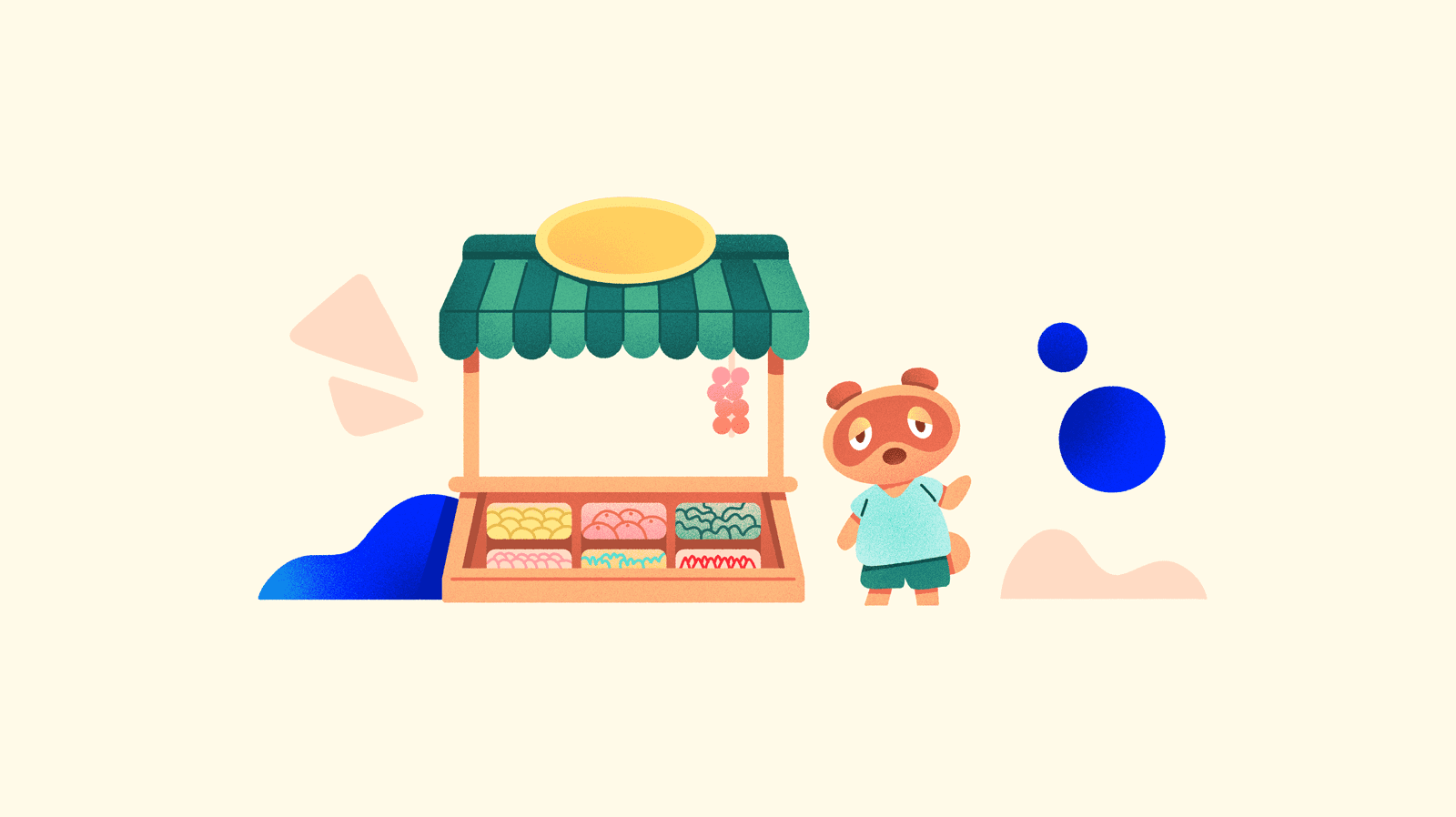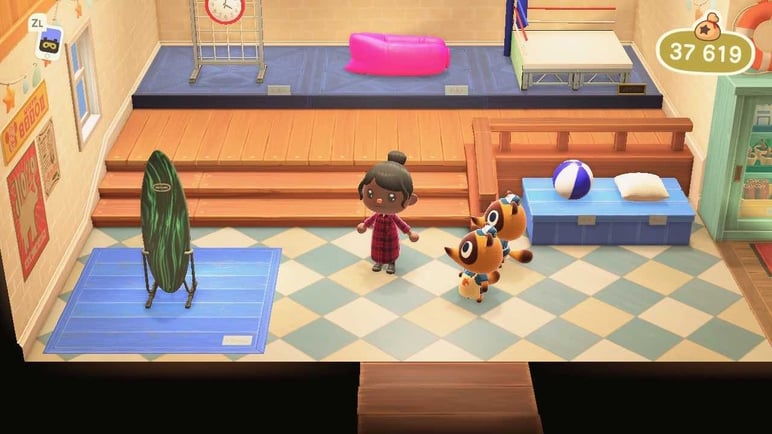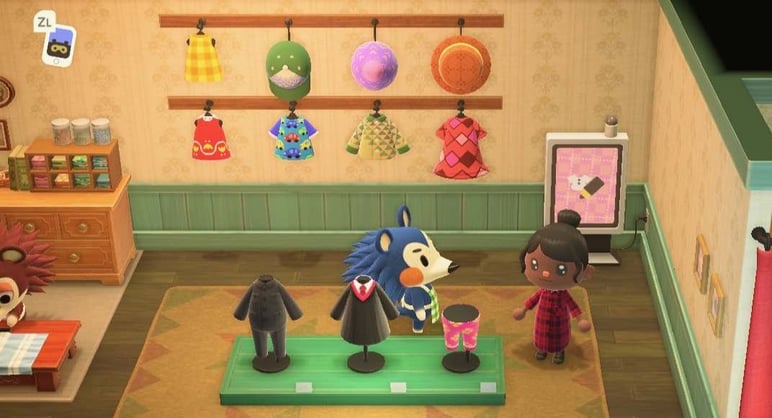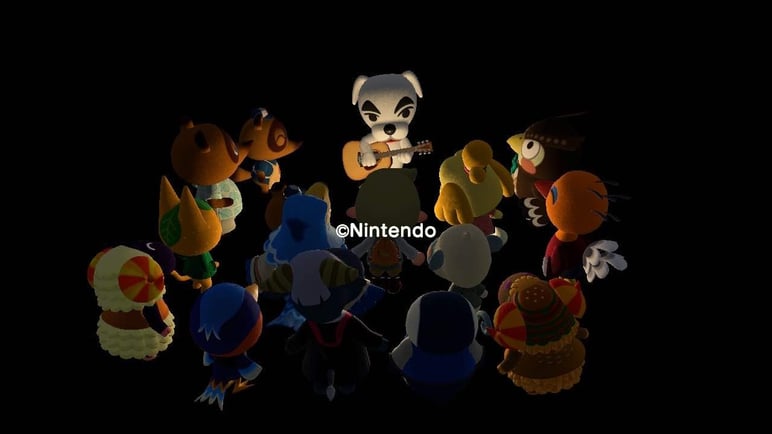
It has become the quintessential quarantine pastime, the virtual escape route for millions of people trapped in their homes without being able to enjoy spring, the outdoors... and store-to-store shopping.
Animal Crossing, the popular video game released by Nintendo in 2001, launched a new version, New Horizons, in April of 2020. Since then, the game has regained a legion of fans and has reopened the debate about what it stands for. Is it a terrible example of addiction to capitalism? A small-scale parody that goes back to the roots of the cooperative society?
The system is very simple: the player arrives to an island where they have complete freedom to prosper there (and, in the process, grow the community). Most of the game’s actions is based on the transactions of ‘bells,’ the equivalent of local currency. What looks like an innocent design and shopping simulator, actually, hides all the strategic wisdom that is applied daily in commerce and ecommerce.
13 sales lessons you can learn playing Animal Crossing
Any product has a market
The great key to Animal Crossing: everything sells. From a pair of broken glasses to the most bizarre tub of gold. And the same product causes different reactions in each person (or animal).
The player can give away products to their zoomorphic neighbors, and while some are thrilled to see them, others will have to hide their disappointment. The frilly dress that is worth 1,000 bells for one can go in the trash for another.
The bottom line is that every product has its audience and your task, as seller, is to locate it. Sometimes through trial and error, but trust that the niche is there.
The best sales strategy is omnichannel
In Animal Crossing, several purchase channels coexist: physical stores, pop up stores that appear from time to time on the island and, ta-da!, online channel.
A machine in the town hall building includes the Nook Shopping option, an ecommerce interface that allows you to order items from a catalog, pay for them online, and receive them the next day in your mailbox. After some purchases, the player even can unblock the mobile app version for shopping online on the go.
A whole Amazon experience of click, pay & get 1-day delivery. Tom Nook is certainly aware of all the commercial trends and as a seller, you must also offer the customer their preferred purchase method.

With discounts and financing, your sales flourish
Tom Nook is one of the most famous characters of Animal Crossing. He is a raccoon who seems to control all the logistics and administration of the island; although, he also acts as a banker, seller, and development consultant.
We could say that Tom Nook is as strong a presence and at the same time invisible as the brands. Is his intention to get rich or also to help others?
Buyers, each time, are more inclined towards sellers who show their more humane and supportive side. Tom Nook offers attractive conditions to the player: mortgages without interest or fixed payment terms, public works that are built through crowdfunding, and a points system (called “miles”) that rewards the player for their loyalty and for spending more.
This attitude is fully replicable in any business: offer discounts and special conditions to both first-time visitors and the most loyal customers, apply rebates on large purchases, and cultivate a database of loyal users to contact them with newsletters of new releases (the game sends letters to the player’s mailbox when there are new products in the store).
A catalog must grow and renew itself over time
One of the reasons why Animal Crossing is addictive is that something new appears every day. While in other games the full catalog to unlock is known from the start, in Animal Crossing stores the selection of products is limited and rotated daily.
This means that any store needs to refresh their offer from time to time to regenerate interest and keep up with the trends. In addition, as the store prospers, it can be upgraded and expanded, and will offer more products to the public. Any online store can do the same and improve from a modest WordPress page to the big league of Shopify or Magento.

A simple and easy to visit the store is better
Shopping in Animal Crossing is very intuitive. In the main store, called Nook's Cranny, you can distinguish the most eye-catching display products from the small catalog of recurring categories, such as flower seeds, tools, or home flooring. Simply select the quantity and it is automatically added to the ‘shopping basket'.
Products are grouped by category, just like the fashion store is arranged into clothes, footwear, glasses and accessories. Moreover, in the player's inventory you can check all the purchases in different groups: furniture, clothes, do-it-yourself items, carpets...
This is one of our first recommendations for sellers: having a well-organized catalog is essential, both for the sake of your team and your day-to-day work and to facilitate the buyer’s searches.
The shopping experience is enhanced by good descriptions
When visiting Animal Crossing stores, the player is assisted by the shopkeepers Tommy and Timmy in a friendly and warm manner. You may not need to chase your customers through the physical store, but it’s important to ‘track’ them through web analysis and heatmaps to understand their behavior and learn what they look for most.
What if you are interested in a product in Animal Crossing? Employees will give you a more extensive description and will indicate the price. “Learn more” is a common option in the game, and it responds to how much we like to be informed.
Product content is key to improving the user experience (and we are convinced that if Tommy and Timmy were to open their online store, they would use a PIM solution).
Seasonal products generate expectation
Seasonal changes and some common holidays are also celebrated in Animal Crossing.
This implies a change of look on the island and the possibility of buying special products for a limited time. Let’s look at an online store that prepares for the Christmas or summer season. A temporary redesign, some special banners, newsletters announcing new products, advance announcements (in the game, they appear on the community board) and, of course, articles adapted to the moment in question and that coincide with the interests of customers, such as swimming pools, fans, and short-sleeved shirts in the summer.
Best sellers are the most profitable products
The local store on each island in Animal Crossing displays a board with “products of the day.” In the game, this means that these products are bought at twice the usual price for 24 hours.
The logic is obvious: the most popular and in-demand products are sold at a higher price. The same goes for scarce products or products constructed with rare or valuable raw materials, such as gold. However, products that are abundant or are defective are sold and bought at very low prices, such as basic socks or a common tree shoot.
Applied at any store, this knowledge is a pricing policy that knows how to adapt to circumstances. But don't try to swindle the customer, or they will end up realizing it (as happens with the art counterfeiter in the game). You should always look for the benefit in the most demanded products from the catalog or those that require a more complex and expensive production.
There are always customers willing to pay more
The game’s collaborative mode allows anyone to visit other people’s islands or receive other players on their own island. Between them, transactions have no rules. And someone desperate to locate a rare item may be willing to pay a lot of bells (or dollars) for it.
There are also specialized sellers who pay twice as much for certain resources that interest them, such as weeds or insects.
In ecommerce, there is always this possibility in the background: customers visiting an online store end up buying more or paying for a more expensive and better product. Upselling is a common strategy that, of course, in real commerce must be applied logically and without trying to empty anyone’s pockets.
Audience tests create better products
At the Animal Crossing Town Hall, a staff member is always available to listen to complaints and suggestions about the island. Because listening is the difference between a seller and a charlatan.
From time to time, a fashion designer will appear on the island and will ask the player to create an outfit to study what the public understands by ‘casual’ or ‘formal’ clothing. In return, she will offer a gift and a discount coupon for the clothing store.
Catalogs are also built at street level, even if it is virtual: look for what your potential customers use, what interests them, and don’t be afraid to listen to their opinions and ask them directly, for which you have an infinite number of analytical options, surveys, and A/B tests.
Positioning should be done anywhere... even in a palm tree
In this game, it seems you have to pay for everything. But you can also get things for free, even by shaking a tree.
This does not mean that your products should appear by surprise in the most unsuspected places on the web, but it does mean that they are more likely to be found by customers if you position them in more places than your own store.
Social media, online ads campaigns, banners on third-party websites, suggestions on related products, marketplaces... If today’s customer visits more and more sites, you should also try to travel with your products to all possible channels.
Local commerce is booming, but you must not lose sight of what’s beyond
Animal Crossing happens within the limits of an island, where a few local businesses are prospering. As the game progresses, these stores are consolidating (some sellers only start on a trial basis) and expanding their facilities.
In this sense, it is an excellent example of the trend that is re-emerging to support local commerce and sellers with a smaller, but well-selected catalog.
In addition, the player can visit other islands to find exotic, hard-to-find products or make more lucrative exchanges and sales. This means that even if your main focus is a particular region, you should never lose sight of new opportunities to expand your business.
Storage, payments and shipping will always give you a hard time
Despite all that, there are some limits to the action in Animal Crossing.
Players must always keep an eye on how many items they have on them, as transport capacity is limited and they will have to use their home storage. This warning applies to sellers who pay little attention to their stock. It’s very important to check often that you don’t have extra items that are piling up meaninglessly in your inventory and should be disposed of.
And, as we’ve seen in the omnichannel experience, not everything is instantaneous. In the checkout box, payments need one day to be processed, and in the Nook Shopping app there is a limit of 5 purchases a day per player. Other reminders that, as a seller, you must take into account which payment gateways and shipping services you should use to offer good terms while making a quick profit.

Ready to play? First try the Sales Layer PIM free for 30 days to experience, firsthand, selling as a premier league company. And with the time you’ll save by automating your catalog, you’ll be able to get back into Animal Crossing.






.png?width=520&name=Blog%20Partner%20(3).png)

.png?width=520&name=Blog%20Partner%20(1).png)
